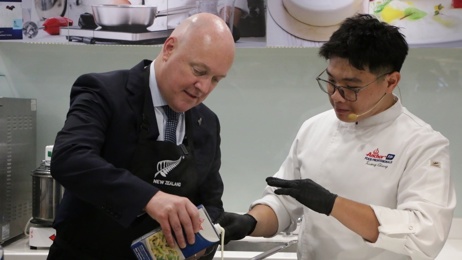There are things you hear in life that never sit well with you, and once they’ve been heard, they sit with you like a dark cloud. Often for weeks or months - and sometimes forever.
One thing I hate to hear is that children are resilient. I can assure you that this statement is almost entirely untrue.
It’s a statement made by those who often inflict pain and huge change upon their children, in the vain hope that everyone will be happy with a decision that they’ve made – that almost certainly has life changing impact for those left trying to deal with it.
I’m not a psychologist, but I really get sick of adults telling me – and telling their children – that they’re resilient and that they’ll be okay. Statements like that are promulgated in order to make an adult feel good about the crappy decision they’ve made.
One of the largest studies of its kind in New Zealand shows that 87% of children endure some form of trauma. For the purpose of this study, trauma is defined as family violence, addiction, bullying, abuse or divorce.
One of the ramifications of having had endured trauma, shown in this study, is the likelihood of the effected child becoming obese amongst other things.
This isn’t some random, poorly constructed study with whinging children who feel afflicted by their parents' decisions. The cohort for ‘The Growing Up In New Zealand Study’ was 5000 strong, and the sole focus of those running the study was to measure the effect of ‘adverse childhood experiences’.
There have been earlier studies here in New Zealand that show about half of Kiwi adults had such episodes in childhood, but the latest data shows that the prevalence of trauma is indeed much higher.
Children love their parents. Children don’t play a role in the decision of their parents to divorce. Children are left wondering what happened in light of the decision to end the family unit by one – or both parents. Children often wonder if what happened is their fault.
How many children affected by the trauma of separation and divorce are offered the ongoing care and attention that they need with professional counsellors and psychologists? How many have access to these crucial services long term? Not many, but having money makes a difference here.
Socioeconomics do not make you a better or worse parent. Love is not limited by money or your access to it.
Socioeconomics should not play the key role in determining the outcome for children and the trauma they suffer, under the dark cloud of decisions made by those who say they love them.
Take your Radio, Podcasts and Music with you









